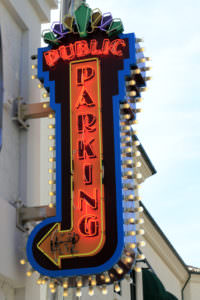
Chance Koch v. ABM Parking Services, Inc. f/k/a AMPCO System Parking, District Court, City and County of Denver, Case Number: 2014CV30067
On January 7, 2015, Attorney Clinton Coberly of Hall & Evans, LLC’s Denver office obtained summary judgment of a premises liability claim from Judge Andrew McCalin of Denver County District Court. In the case, Plaintiff alleged that he slipped and fell on black ice in Defendant ABM Parking Services, Inc.’s (“ABM”) pay-by-the-hour parking lot at 2:00 a.m. and sustained serious injuries to his ankle. It was undisputed that Plaintiff was not a customer of the lot, and he was not visiting any nearby restaurants, bars or other businesses adjacent to the lot. Rather, Plaintiff was taking a shortcut across the lot to get to a friend’s residence when he slipped and fell.
The issue presented by the motion was whether Plaintiff was a licensee or a trespasser under the Colorado Premises Liability Act, C.R.S. § 13-21-115 (2015)(the “Act”). Under the Act, a landowner’s duty of care depends upon the injured person’s status as an invitee, licensee, or trespasser when that person enters the landowner’s property. C.R.S. § 13-21-115(3). A “licensee” is a “person who enters or remains on the land of another for the licensee’s own convenience or to advance his own interests, pursuant to the landowner’s permission or consent.” C.R.S. § 13-21-115(5). If Plaintiff qualified as a “licensee” under the Act, ABM would have owed Plaintiff the duty to use reasonable care to warn him of dangerous conditions about which ABM had actual knowledge. C.R.S. § 13-21-115(3)(b)(I)-(II).
A “trespasser” under the act is a person who enters or remains on the land of another without the landlord’s consent. C.R.S. § 13-21-115(5). If Plaintiff qualified as a “trespasser” under the Act, ABM would only be liable for the injuries that ABM “willfully or deliberately” caused. C.R.S. § 13-21-115(3)(a).
Plaintiff argued he was a licensee and maintained consent to enter the lot could be implied because there no signs prohibiting non-paying customers from entering or trespassing. Plaintiff further argued consent was implied from the way the parking lot was situated in relation to an adjoining restaurant, which opened to the parking lot, making it necessary to cross the lot to get into the restaurant. Plaintiff also argued consent was implied because during street festivals, the lot is open to everyone. Plaintiff did not allege that ABM willfully or deliberately caused his injuries.
ABM disputed that consent could be implied from the circumstances presented. Mr. Coberly argued Plaintiff was not attending a street festival or patronizing the adjoining restaurant and that Plaintiff could have taken an alternate public route to get to his friend’s apartment without trespassing through the ABM lot. Mr. Coberly further argued that summary judgment should be granted because Plaintiff was a trespasser and had not alleged ABM willfully or deliberately caused his injuries.
The Court agreed with Mr. Coberly and ABM. While there may have been implied consent for street festival attendees and patrons of the adjoining restaurant, the Court found the implied consent did not extend to Plaintiff because he was not attending a street festival or visiting the adjoining restaurant at the time of the slip and fall. Importantly, the Court held an entrant’s use of the lot must bear a relationship to the circumstances giving rise to the implied consent to enter the lot in order for the entrant to qualify as a licensee. Since there was no implied consent for Plaintiff (or other pedestrians) to use the lot as a shortcut or a general route of traverse, the Court found Plaintiff was a trespasser at the time of the incident. Because Plaintiff was found to be a trespasser when he fell and no willful or deliberate conduct was alleged, summary judgment was appropriate.
This is an important case that stands for the proposition that a plaintiff who is injured while crossing the land of another as a means of egress, rather than for the purposes of patronizing their establishment, may qualify as a trespasser. In such a case, the landowner would only be liable to the trespassing plaintiff for injuries it willfully or deliberately caused. However, the Court’s decision did suggest that had plaintiff been patronizing the adjoining restaurant, the restaurant may have owed plaintiff a duty under the Act, even though the restaurant did not own, lease or occupy the parking lot where the allegedly defective condition existed. Therefore, where there may be implied consent to use a parking lot or a part of a neighbor’s land to enter an adjoining establishment, the adjoining landowner may owe a duty of reasonable care to warn its patrons of dangerous conditions of which it is aware of on their neighbor’s land.
Christopher Bryan
